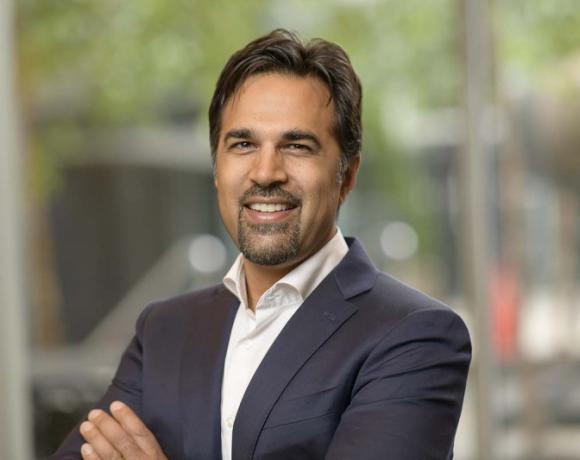Sohrab Shah received a PhD in computer science from UBC in 2008 and was appointed as a Principal Investigator to The BC Cancer Agency and the University of British Columbia in 2010. As well, Dr. Shah was appointed to MSK in April 2018 as the inaugural Chief of the Computational Oncology Service and is the incumbent of the Nicholls-Biondi Chair. He held the Canada Research Chair in Computational Cancer Genomics, and was the recipient of both a Michael Smith Foundation for Health Research Career Investigator Award and a Terry Fox Research Institute New Investigator Award. His research focuses on understanding how tumours evolve over time through integrative approaches involving genomics and computational modeling. Dr. Shah has pioneered computational methods and software for inference of mutations in cancer genomes as well as deciphering patterns of cancer evolution which have been widely disseminated internationally. He has a track record of developing novel, innovative Bayesian statistical models, algorithms, and computational approaches to analyze large, high dimensional genomics and transcriptomic data sets, from both patient tumours and model systems (a list of published tools can be found here). This includes advancing molecular profiling of cancer cells at single cell resolution. Dr. Shah has been at the forefront of studying tumor evolution in breast, ovary and lymphoid malignancies. His work has been published in Nature, Nature Genetics, Nature Methods, NEJM, Genome Research, Genome Biology, amongst others. Dr. Shah oversees an annual budget of >$1M in competitively awarded funding from philanthropic, government and international bodies.
Dr. Shah has trained several highly productive PhD graduates whom have gone on to positions at Harvard Medical School, Oxford University Statistics and the Broad Institute of MIT. His trainees include 2 Vanier scholars and 1 Michael Smith Foundation for Heath Research postdoctoral fellow. He was honoured with the Distinguished Achievement Award for Overall Excellence – Early Career. Fac. of Med UBC (2013), and was named a Killam Laureate recognizing outstanding research and scholarly contributions at University of British Columbia (2016).
Chief Of Computational Oncology, Memorial Sloan Kettering Cancer Center
Affiliate Professor, University of British Columbia – Department of Pathology and Laboratory Medicine
Associate Member, Genome Sciences Center
Faculty Member, University of British Columbia – Genome Sciences and Technology Graduate Program
Associate Member, University of British Columbia – Department of Computer Science
Faculty Member, CIHR/MSFHR Bioinformatics Program
PhD, Computer Science (Bioinformatics), University of British Columbia 2008
MSc, Computer Science (Bioinformatics), University of British Columbia 2005
